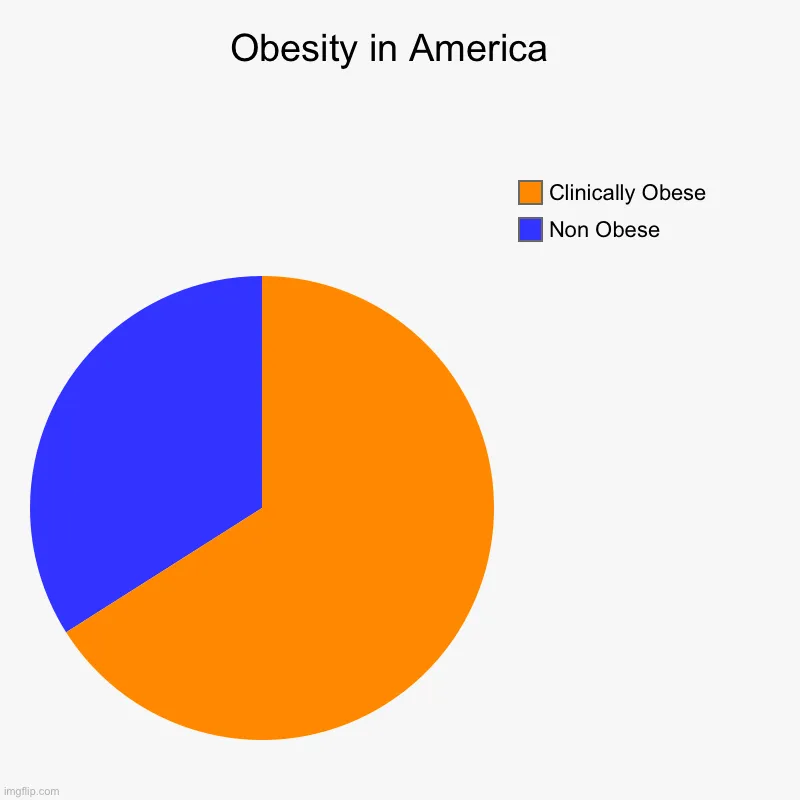Obesity has become a major health concern in the United States, with the obesity rate hitting an all-time high in recent years. According to the Centers for Disease Control and Prevention (CDC), more than 42% of adults in America are now classified as obese. This is a troubling trend that has serious implications for public health and the economy.
The Rise of Obesity in America
Obesity rates in America have been steadily rising over the past few decades. In the 1960s, only around 13% of adults were considered obese. By the 1990s, that number had more than doubled to 29%. Today, over 42% of American adults are classified as obese, with rates continuing to climb each year.
Factors Contributing to Obesity
There are several factors that have contributed to the rise in obesity rates in America. These include:
- Poor Diet: The prevalence of fast food and processed foods high in sugar, fat, and calories has led to an increase in obesity rates.
- Lack of Physical Activity: Sedentary lifestyles and a decrease in physical activity levels have also played a role in the rise of obesity.
- Genetics: Some individuals may be more predisposed to obesity due to genetic factors.
- Socioeconomic Factors: Individuals with lower incomes may have limited access to healthy food options and opportunities for physical activity.
Health Implications of Obesity
Obesity is associated with a range of health problems, including:
- Heart Disease
- Diabetes
- High Blood Pressure
- Stroke
- Certain Types of Cancer
Obesity can also have a negative impact on mental health, leading to depression and low self-esteem. It can reduce quality of life and increase healthcare costs for individuals and society as a whole.
Addressing the Obesity Epidemic
Addressing the obesity epidemic in America will require a multi-faceted approach. This includes:
- Promoting Healthy Eating Habits: Encouraging individuals to consume a balanced diet rich in fruits, vegetables, and whole grains.
- Increasing Physical Activity: Encouraging regular exercise and physical activity to help individuals maintain a healthy weight.
- Educating the Public: Providing information and resources to help individuals make informed decisions about their health.
- Policy Changes: Implementing policies that promote access to healthy food options and opportunities for physical activity in communities.
Conclusion
The obesity rate in America has reached an all-time high, with over 42% of adults now classified as obese. This trend has serious implications for public health and the economy, as obesity is associated with a range of health problems and increased healthcare costs. Addressing the obesity epidemic will require a concerted effort from individuals, communities, and policymakers to promote healthy eating habits, increase physical activity, and educate the public about the risks of obesity. By working together, we can combat the obesity epidemic and improve the health and well-being of all Americans.
#Shocking #Statistics #Obesity #Rate #America #Hits #AllTime #High


